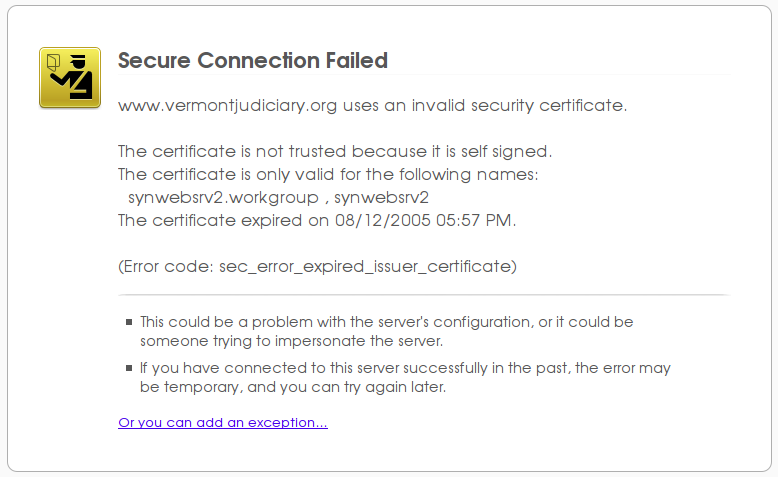This recent post is not the first time that the Ubuntu project and its sponsor, my employer, have been accused of neglecting Kubuntu. And it may not be the last. But please allow me to make some points.
Full disclosure: I am a Canonical employee and a GNOME Foundation member.
Caveat: The opinions expressed in this post are solely my own, and should not be construed as representative of Canonical’s corporate policy or ethos, nor as representative of the Ubuntu or Kubuntu projects’ ideals or policies.
This recent post is not the first time that the Ubuntu project and its sponsor, my employer, have been accused of neglecting Kubuntu. And it may not be the last. But please allow me to make some points.
First, Ubuntu is a project. If Ubuntu “ignores” Kubuntu, the reason is simple. They are different projects. I’ll be attending the GNOME Boston Summit 2008 this weekend. If I don’t find a lot of KDE developers there, can I then posit that KDE “ignores major trends and issues related to the free Unix desktop?” Clearly not. And I wouldn’t expect to find large numbers of GNOME developers at Akademy. Although GNOME and KDE have similar aims, there is no reason to expect the two projects to mutually support each other in absolutely everything they do. When such mutual support happens, it’s very, very nice. I value my friendships with many people in the KDE community, but I wouldn’t seek out a KDE developer when I have issues with GNOME. By extension, I wouldn’t blame Ubuntu developers and packagers when things break in Kubuntu. If Kubuntu is broken, then Kubuntu developers, MOTUs, bug triagers, and all Kubuntu community members are responsible for fixing it.
Second, looking at the issue of Konqueror and the Ubuntu wiki, I am unable to find Jonathan Thomas’ reports, suggestions, or potential fixes. In fact, I can’t even see that he’s subscribed to the bug. It’s one thing to complain about an issue not being addressed. It’s quite another to complain about an issue you yourself have not taken the time to address. If the issue is that important to you, get involved. Not to belabor the “separate projects” point, but it’s not the responsibility of GNOME developers to make sure their stuff works in KDE (and vice versa). Thus, at the desktop/UI level, it’s not the responsibility of Ubuntu developers to ensure their stuff works in Kubuntu. Don’t get me wrong, I think it’s fantastic when this happens, and we should always strive to allow this kind of cooperation. But demanding that one project alter its needs and the needs of its users based on the requirements of a different project does a disservice to both projects involved, never mind the users that depend upon them. Now, be aware, if the Linux kernel deployed in Ubuntu breaks KDE functionality for Kubuntu, that’s the responsibility of the kernel team. But if GNOME features do not translate well to another desktop environment, that’s not necessarily GNOME’s, and by extension the distros that use GNOME, problem.
Finally, I don’t see any suggestions from Jonathan as to how things might be improved in the future. Criticism is always difficult to hear, but when such criticism is in no way constructive, it’s difficult to find a reason to listen at all. Not to mention that unconstructive criticism probably violates the spirit, if not the letter, of the Ubuntu Code Of Conduct. Simply put, “lead, follow, or get out of the way.” It’s also especially interesting that two-thirds of the issues Jonathan cites (Konqueror vs. Moin, KNetworkManager vs. NetworkManager) are actually already fixed, and were prior to his post.
I apologize if this post comes off as somewhat harsh, it is not my intention to be so. But clearly it is not the responsibility of the Camry assembly plant to ensure the Prius meets delivery requirements, despite both being owned by Toyota. In the case of Ubuntu and Kubuntu, this distinction is even more clear, as no single company “owns” either. Kubuntu belongs to you, the Kubuntu community of users and developers. If something is missing, broken, or needs polish in Kubuntu, it is the responsibility of the Kubuntu community to address these issues. While it’s always desirable for the different desktop environment projects to work together, this obviously cannot happen all of the time. And GNOME is not going to ask “How does this affect KDE?” every time a feature is added to GNOME. Conversely, I wouldn’t expect KDE developers to worry much about GNOME’s needs.
Jonathan, I understand your frustration. But be aware, Kubuntu is not a product as much as it is a project. You’re able, at any time, to get involved and make the changes you deem necessary. If you don’t, it’s a bit unfair to ask other people to address your specific needs and issues without your involvement. I’m aware of this because I often have to censor myself when I encounter a piece of missing or broken functionality. For instance, the UPnP browser plugin in Rhythmbox simply does not work with MediaTomb UPnP shares. It really annoys me, as I have to run both MediaTomb and Firefly/mt-daapd on my media server. But I don’t have the time or skills necessary to address this issue myself, so I find myself having to squelch my dissatisfaction to some degree. I’d love to file bug reports, participate in triaging of these bugs, and test potential fixes. But my work and personal commitments have thus far prevented me from doing so. Thus, since I’m not part of any potential solution, complaining about this broken functionality simply would make me part of the problem.
Personally, I don’t think that’s helpful or constructive. Flame on.



